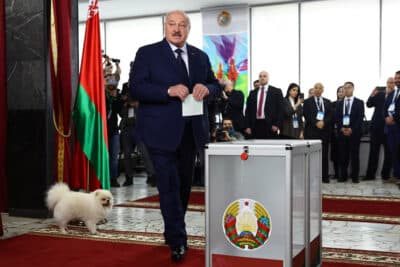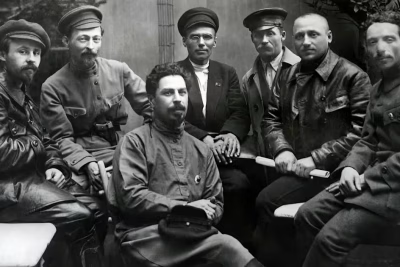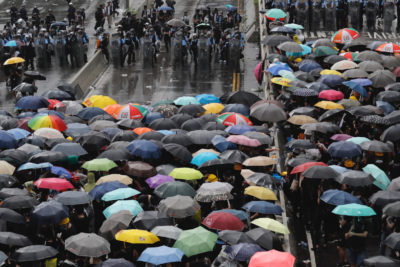
Belarusian Diaspora 2025: How Exiles Shape the Fight for Democracy

- 🌍 The Growth of the Belarusian Diaspora Since 2020
- 🏛️ Political Lobbying and International Advocacy
- 💰 Financial Support for Resistance Efforts
- 🎭 Cultural Preservation and National Identity
- 🖥️ Digital Coordination and Modern Activism
- 🔮 The Future Role of the Belarusian Diaspora
- ❓ FAQs: Belarusian Diaspora 2025
The Belarusian diaspora 2025 has become a powerful force in the ongoing struggle against Alexander Lukashenko’s authoritarian regime. Following the 2020 protests and subsequent crackdown, tens of thousands of Belarusians fled their homeland, forming vibrant communities across Europe and beyond.
These exiled citizens are not only keeping their national identity alive but also serving as a political, financial, and cultural lifeline for those still in Belarus. From lobbying international governments to funding independent media and supporting political prisoners, the diaspora has transformed into a key pillar of resistance.
🌍 The Growth of the Belarusian Diaspora Since 2020
The 2020 protests marked a turning point. After mass arrests and state repression, many activists, journalists, and opposition supporters were forced to leave Belarus. Over the past five years:
- Poland, Lithuania, and Germany have emerged as primary hubs for Belarusian exiles.
- NGOs report that over 100,000 Belarusians relocated to neighboring EU countries between 2020 and 2024.
- Cities like Vilnius and Warsaw are now known as "capitals in exile," housing opposition offices and cultural centers.
This wave of migration includes political leaders, independent journalists, students, and tech professionals, all contributing to a thriving diaspora committed to democratic change.
🏛️ Political Lobbying and International Advocacy
One of the diaspora’s most impactful contributions is political lobbying. From European parliaments to grassroots activism, Belarusians abroad work tirelessly to keep global attention on their homeland.
- Protests outside embassies: Regular demonstrations in capitals like Berlin, London, and Brussels remind the world of ongoing repression in Belarus.
- Engagement with lawmakers: Groups such as the Belarusian Council in Exile coordinate with EU and U.S. officials to maintain sanctions and pressure against Lukashenko’s regime.
- Partnerships with NGOs: Collaboration with Amnesty International, Human Rights Watch, and local human rights organizations amplifies their cause internationally.
Thanks to this sustained advocacy, Belarus remains a recurring topic in Western policy discussions, even amidst competing global crises.
💰 Financial Support for Resistance Efforts
Beyond politics, the Belarusian diaspora in 2025 plays a crucial role in financing resistance movements and humanitarian relief:
- Aid for political prisoners: Fundraising campaigns provide food, legal fees, and family support for those jailed inside Belarus.
- Support for independent media: Outlets such as Belsat and Nexta rely heavily on diaspora donations to continue operating from abroad.
- Emergency assistance: NGOs run by exiled Belarusians distribute funds to help activists escape persecution or relocate safely.
This networked financial backing ensures that both civil society and underground activism in Belarus can continue despite the regime’s stranglehold.
🎭 Cultural Preservation and National Identity
For the diaspora, cultural preservation is resistance. Across Europe and North America, Belarusians organize festivals, language schools, and historical exhibitions that strengthen ties to their heritage:
- Cultural events: Annual gatherings in Vilnius, Warsaw, and Berlin feature music, art, and traditional cuisine to maintain national pride.
- Language courses: Exiled communities promote the Belarusian language, often suppressed in the homeland by the regime’s Russification policies.
- Memorial initiatives: Commemorations for victims of state violence, such as "Days of Remembrance," help keep historical memory alive.
By safeguarding cultural identity, the diaspora reinforces the democratic ideals that many hope to one day restore in Belarus itself.
🖥️ Digital Coordination and Modern Activism
The diaspora also harnesses technology to stay connected with those inside Belarus:
- Encrypted platforms: Tools like Signal and ProtonMail allow activists abroad to coordinate securely with allies at home.
- Online campaigns: Hashtag movements like #FreeBelarus generate international visibility and media coverage.
- VPN outreach: Diaspora groups distribute digital tools that bypass censorship, granting Belarusians access to independent information.
This digital activism bridges the physical gap between exiles and their compatriots, sustaining a unified movement for change.
🔮 The Future Role of the Belarusian Diaspora
As Lukashenko tightens his alliance with Moscow, the Belarusian diaspora remains one of the few voices advocating globally for democracy in Belarus. Experts predict its role will only grow stronger:
- Greater coordination between diaspora organizations could lead to formalized political representation.
- Continued media support will be critical in countering state propaganda.
- A potential regime change could see exiles return, bringing skills, networks, and resources to rebuild the country.
Until then, the Belarusian diaspora in 2025 serves as a vital lifeline for both the democratic movement and the preservation of national identity abroad.
❓ FAQs: Belarusian Diaspora 2025
Q1: Where is the Belarusian diaspora most active in 2025?
Primarily in Poland, Lithuania, Germany, and other European countries, though communities also exist in the U.S. and Canada.
Q2: How does the diaspora support political prisoners in Belarus?
Through fundraising, legal aid, and humanitarian assistance programs organized by exile networks.
Q3: Can the diaspora influence Belarus’s democratic future?
Yes, by lobbying governments, funding civil society, and preparing for a democratic transition.
Q4: What role does culture play in the diaspora’s identity?
Cultural events, language education, and memorials keep Belarusian heritage alive and connected to democratic resistance.
Q5: How does the diaspora coordinate internationally?
Via digital platforms, NGOs, and transnational conferences that unite activists from across continents.





